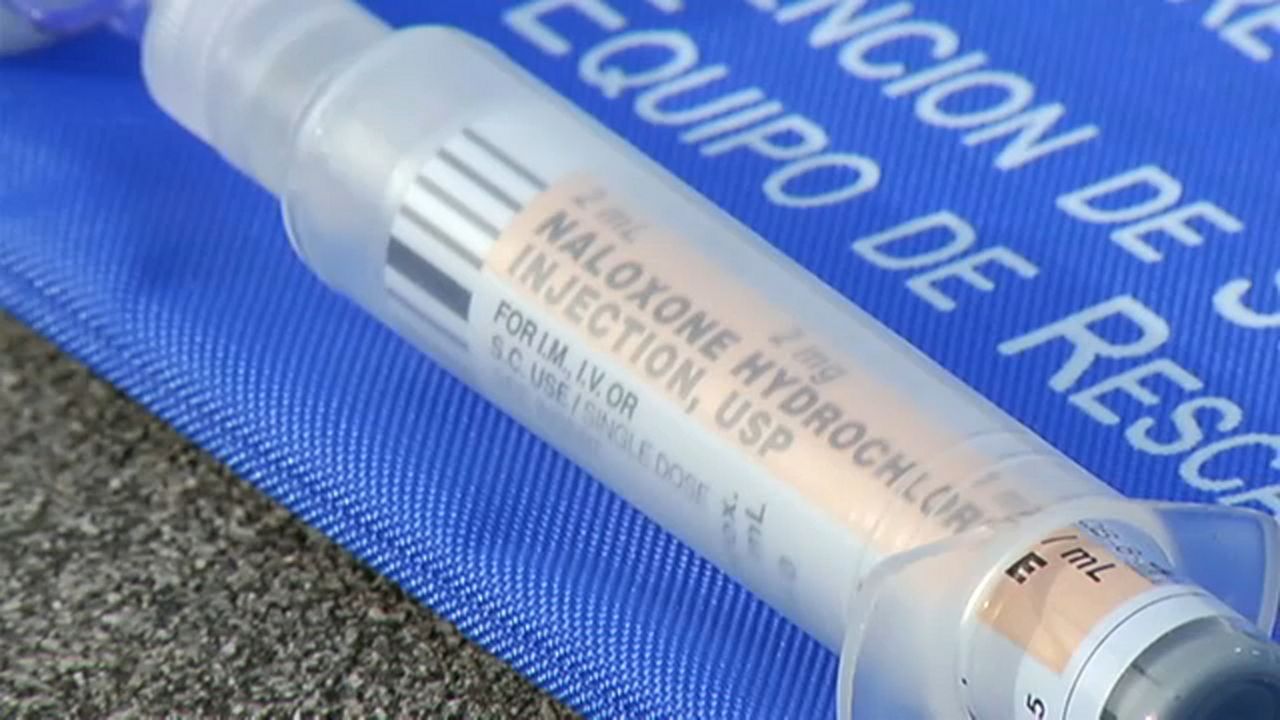Public college campuses in New York will be required to carry medications like naloxone, which are meant to counteract the effects of opioids as state officials seek to reduce the number of overdoses that have sharply risen in the last year.
Gov. Kathy Hochul signed the legislation on Friday, which takes effect immediately.
"By signing this legislation, lifesaving overdose prevention medicine will be required in SUNY and CUNY campus housing, as well as trained staff on-site - leading to faster response times and helping prevent needless tragedies," Hochul said. "My administration will continue to work every day to fight the opioid epidemic and provide New Yorkers with further access to lifesaving resources, services, and care."
Deaths from opioid overdoses have now surpassed gun-related murders as well as car crashes as the leading cause of death for Americans under the age of 50. Since 2020, New York has seen a rise in overdose deaths.
Overdose deaths in New York rose by 14% in 2021 compared to the prior year, the state Department of Health reported in October. Health officials also reported a 2% rise in hospitalizations due to opioid overdoses and a 7% rise in opioid overdoses that do not involve heroin. Overdose deaths are also on the rise across the country as fentanyl usage has spread.
Emergency room visits have also sharply increased by 24%, health data show.
New York Health Commissioner Mary Bassett earlier this year issued an order requiring all pharmacies in New York to carry naloxone in order to curtail the overdoses.
The bill was sponsored by state Sen. Michelle Hinchey and Assemblyman Daniel O'Donnell.
"All across New York, the opioid epidemic continues to threaten and upend communities," O'Donnell said. "We cannot and will not give up on the fight to save lives and stand by those who are struggling with addiction. I am deeply proud to be working with Governor Hochul, Sen. Hinchey, and educational leaders across our state to ensure that we are equipped with the tools and knowledge to prevent overdoses when and where they are happening."


